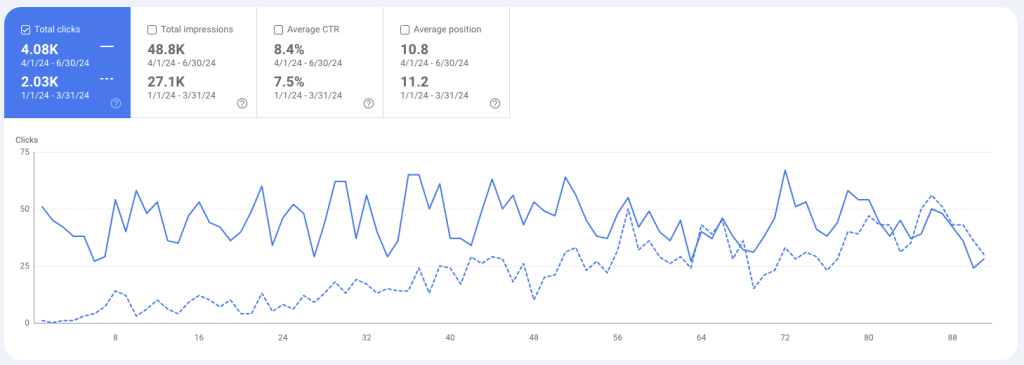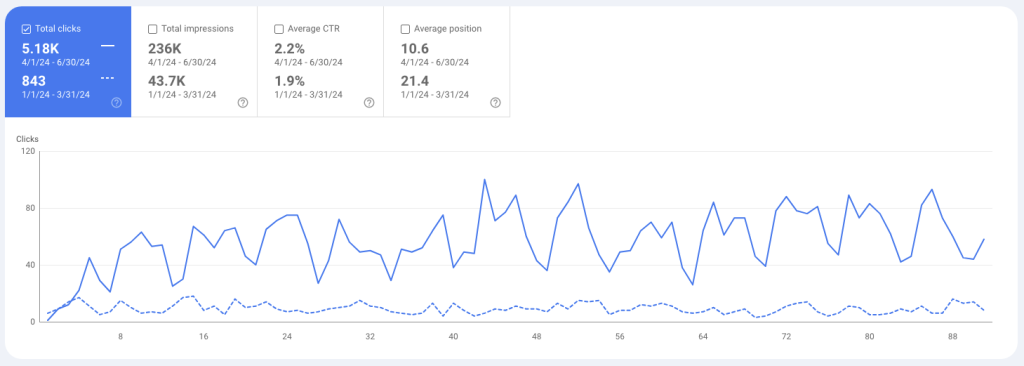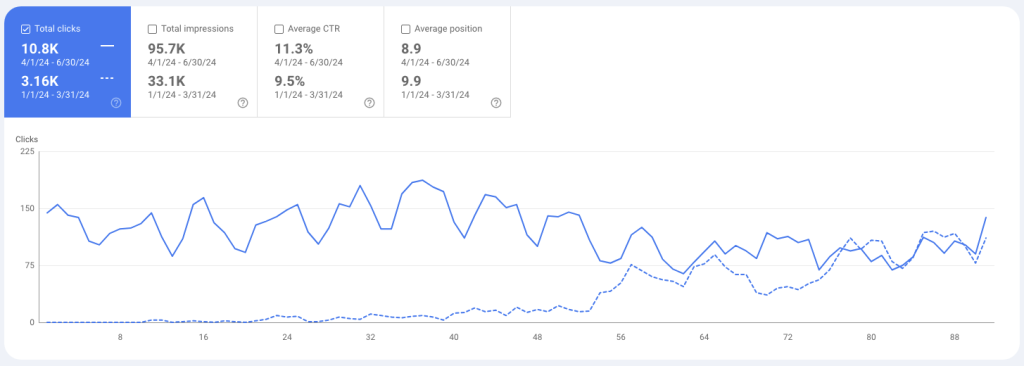In the Leaked Google Search API Documents, there were two attributes that indicated Google could be evaluating the text around a link: fullLeftContext and fullRightContext.
This is not new information. It is something Google has confirmed in the past, and that SEOs have suspected for a long time.
In a Google SEO Office Hours in September of 2020, John Mueller was asked if Google would use the text around a naked URL link to gather some additional information as to what the link was about.
John replied that Google’s algorithms do that, “but that’s more kind of secondary.”
In Google’s official documentation, when talking about links and anchor text, Google states, “Remember to give context to your links: the words before and after links matter, so pay attention to the sentence as a whole.”
This has two implications for SEO.
First, you can use shorter anchor text for your links if you make certain that text surrounding them is relevant to the page you are linking to.
I’ll steal an example Google uses in that same documentation.
🚫 Bad (weirdly long):
Starting next Tuesday, the <a href=”https://example.com”>Knitted Cow invites local residents of Wisconsin to their grand re-opening by also offering complimentary cow-shaped ice sculptures</a> to the first 20 customers.
✅ Better (more concise):
Starting next Tuesday, the <a href=”https://example.com”>Knitted Cow invites local residents of Wisconsin</a> to their grand re-opening by also offering complimentary cow-shaped ice sculptures to the first 20 customers.
Second, you should be careful and pay close attention to the words closest to your anchor text. Make sure that there are not adjectives that change the meaning of the term you intend to rank for.
What do I mean by that?
Here is an example from a site I was reviewing recently.
This company offers order fulfillment as a service for ecommerce businesses. There is a main page that targets the term order fulfillment that many of their articles linked to.
However, many of these links were not entirely on topic.
I found articles linking to it that had sentences like:
A hybrid order fulfillment model might be a more efficient option for your business.Most new ecommerce businesses start off using in-house order fulfillment, and later as they grow and need more resources will transition to partnering with a third-party logistics service.These links are not terrible, but hybrid and in-house are types of order fulfillment. Putting them in front of them term changes its meaning.
These links would be more effective pointing to pages about hybrid order fulfillment and in-house order fulfillment, and while we are at it, might as well include the whole term.
Then find a different place in those articles to link to order fulfillment.
A sentence like:
A large part of giving your customers a positive experience is providing fast, efficient, and accurate order fulfillment.would be a much better way to link to a page about order fulfillment. Here the term is used in a more general way, not niching down to specific type of order fulfillment or topic about order fulfillment.
This is a simple (but maybe time-consuming on a really big website) project you can do on your sites.
Start with your most important pages and look at all the internal links pointing to them across your site.
Are there terms in front of or after your links that could be changing the context of that link slightly? If so, consider linking to that term somewhere else on the page or restructuring the content slightly.
Here are some examples where I did this in the beginning of February and the results since then:









